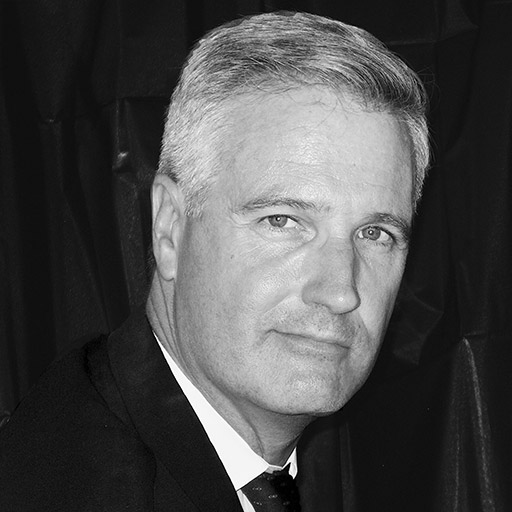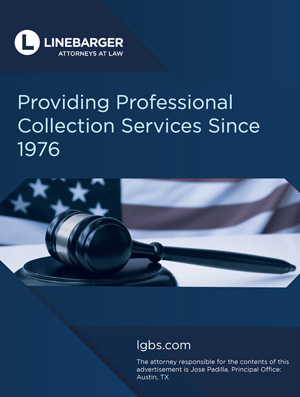As courts become increasingly complex, it is the court administrator who manages the ever-expanding breadth of operations. The areas of expertise possessed by court administrators have grown over the years, and their insights are all the more valuable. Negotiating contracts, keeping current on advancements in information technology, understanding the latest human-resources regulations, managing courthouse security, analyzing and presenting statistical data, overseeing construction projects — these are just a few of the areas where the court administrator’s expertise excels.
It is, therefore, worth considering the court administrator’s role when faced with the opportunity to share that knowledge. We remember NACM Canon 1.2, “A court professional shall avoid improper influences from business, family, position, party, or person,” as well as Canon 2.1, “A court professional shall avoid relationships that would impair one’s impartiality and independent judgment.” As companies and organizations outside of the courthouse realize the value of the court administrator’s expertise, can it pose an ethical dilemma?
The Scenario
Court administrator Toby Malone had a new automated case management system (CMS) installed 18 months ago. He researched new systems for several years before recommending the one offered by Globex Computer Solutions to his bench. One advantage of the Globex CMS was that his court would be a beta-test site, which offered enhanced implementation support. He also saw the installation of the new CMS as a capstone to his long and respected career.
Implementation went well for the court and for the company. Globex wanted to expand beyond Toby’s court and the two other court installations in the state. The plan was for Wyatt from Globex marketing to develop a series of webinars for trial courts around the country.
Toby agreed to appear in the first webinar and recount his court’s experience. As the webinar was being produced, Toby made it clear that he wanted to give an honest appraisal, to which Wyatt agreed. While working on what he would say, Toby contacted the other two courts regarding their experience.
To his surprise, the other two courts were less enthusiastic. Making system modifications, which Toby’s court found prompt and informal, was not nearly so easy for the other courts. Additionally, they complained that they did not receive the same degree of installation support.
In the final webinar development meeting, Toby went over his planned segment, included relating his findings on the experience of the other two courts. Wyatt asked Toby to stick only to his court’s experience and not to discuss the other courts. Wyatt’s rationale was that Toby would be relating unverified secondhand information. The complaints could very well be the grumblings of some disgruntled employees. Wyatt assured Toby that the company would contact the other courts, investigate each criticism, and correct whatever problems existed. There was no need for Toby to bring up the other courts.
Toby reluctantly agreed although he felt that he no longer had the free hand Wyatt had originally promised. As the final development meeting was wrapping up, Wyatt mentioned that if the first webinar went well, several more would be held at different locations around the country. Toby assumed that the webinar “going well” implied his ongoing participation in the later presentations.
As he was only a few years from retirement, Toby’s mind could not help but drift to the potential of working for Globex as a consultant to supplement his meager pension. He was brought back to reality when he remembered that Wyatt never actually promised him anything more than involvement in the current webinar. Still, even on a subconscious level, Toby wanted to do well.
The Respondents
Here to discuss the topic of vendors and court administrators are Elizabeth Rambo, trial court administrator for the Lane County Circuit Court in Eugene, Oregon; Eric Silverberg, court administrator for the Cochise County Superior Court in Bisbee, Arizona; and Mary Majich Davis, chief deputy court executive officer for the Superior Court of California, County of San Bernardino.
Questions
Do you think that Toby’s involvement in the webinar is ethical?
Eric Silverberg admitted that this is a tough issue. Toby’s interest in working for Globex is troubling and that alone should keep him from participating. “A better course is not to participate and instead, have his court listed, along with other customers, for more information.”
Elizabeth Rambo thought that Toby’s involvement is not ethical. Toby is at least partially motivated to participate in the webinar for personal reasons, including his daydreams of postretirement employment and financial enrichment. “He should have examined those motivations before determining whether it was ethical to be involved with the webinar.”
Liz pointed out sections of the Oregon Judicial Department’s personnel rules, including Rule 7.01 (14), which requires employees to abstain from using information received during judicial department employment to further the private interests of oneself or others, and Rule 7.01 (19), which requires employees to abstain from using employment within the judicial department to attempt to gain preferential treatment for self or others.
Mary Majich Davis did not think it was unethical, but she did not think this was something that Toby should be doing. “It may be ethical, but it is not appropriate. I do not think this is unethical as long as he only speaks to the facts as they relate to his court’s experience. That being said, I do not think it is advisable for him to participate because it could be perceived that he is a marketing tool for the vendor.”
Do you think Toby is (even subtly) endorsing Globex’s CMS?
Mary’s advice is for Toby to make it very clear that he is not endorsing the vendor’s product, and that he is only speaking factually about his court’s experiences. “This is a slippery slope and he should not participate in this webinar because there is a high probability that it could be perceived as an endorsement to those listening.”
Liz and Eric both think Toby’s participation in the webinar does amount to an endorsement. Liz commented, “During a recent search for a court software vendor, I viewed corporate-sponsored videos along the same lines as this proposed webinar, in which court employees made only positive statements about the product. I wondered what those same court employees might share privately about their experience. The answer to my question may be ‘the same thing,’ but the perception creates an ethical conflict.”
Is it reasonable for Wyatt to ask Toby to change his part of the webinar?
To Liz, it is reasonable since Globex is paying for and organizing the webinar. The company has the right to ask for whatever it wants. “Administrators must respond to requests (reasonable or not) and make decisions that comport with their ethical standards. Toby could have 1) told Wyatt his participation was entirely contingent on his ability to speak freely and let them decide what to do, or 2) declined to participate.”
In Eric’s opinion, it is not reasonable for Wyatt to expect Toby to make changes. “The company’s role is to sell and, in fairness, Toby’s opinion is just one voice.”
Mary reiterated that Toby needs to speak only about the facts regarding his court’s experiences relating the CMS implementation. “If asked about other courts’ experiences then he should suggest that they contact those courts directly to get information about their implementation experiences and the vendor’s performance.”
Say, instead of a private company, a nonprofit had asked Toby to participate in a webinar advocating for a cause (for example, eliminating cash bail). Would Toby’s participation be less of an ethical concern?
Mary and Eric still advised that Toby should not participate even if a nonprofit is putting on the webinar. Mary’s reaction, “It may appear that he is taking a position of endorsing this cause or he is speaking on behalf of the court and endorsing the cause.” Eric thinks it might even be more of an ethical concern. “It would be unethical as it would be construed as the court’s official policy.”
Liz’s thoughts are that the nonprofit’s “advocating cause” would have to be evaluated for ethical conflicts just like the “pitch” of a private company. For example, eliminating cash bail is a political issue involving the judicial branch. “Participating in the webinar could be interpreted as using a judicial department administrative position to exert influence over a potential initiative petition to amend the [Oregon] Constitution. If Toby wants to express a personal view on the issue, he would have to revert to citizen Toby and refrain from using his title or employment information.”
Can Toby do anything to make his participation appropriate?
In Mary’s estimation, it is ethical if Toby speaks only to the facts relating to his court’s experiences with the CMS implementation, but she does not recommend that he participate in this webinar or future webinars. “I am very troubled by his motivation about possible future employment or contractual relationship with the CMS vendor.”
Nothing Toby can do would be enough, in both Eric and Liz’s view. Eric declared, “Even if he offered a disclaimer, he could be viewed as disagreeing with the position of his presiding judge.”
Liz noted that Toby’s motivation to participate is largely based on his desire to enhance his reputation and his potential for future financial gain. “He should have had a clause in his court’s contract with the vendor stating that he would only provide independent references and would not participate in company-sponsored communications that could be perceived as product endorsements.”
My thanks to Liz Rambo, Eric Silverberg, and Mary Majich Davis for their thoughts on this very timely topic. No matter where you come down on this personally, it seems that now would be a good time to have a conversation with the leadership in your court on what to do if this circumstance ever comes up.
Be sure to visit the NACM ethics web page at http://nacmnet.org/ethics. You can view the entire NACM Code of Conduct, previous ethics columns, and educational ethics modules that your court or state association could use to present ethics training.
Want to Be a Respondent?
Would you like be a respondent on an upcoming ethics column? Do you know someone who would like to be a respondent? Email me at kieferpeter@hotmail.com.
ABOUT THE AUTHOR
Peter C. Kiefer has spent over four decades working for the courts in Oregon, California, and Arizona, as well as on rule-of-law projects in Liberia, Moldova, and Beirut. Contact him at kieferpeter@hotmail.com.



